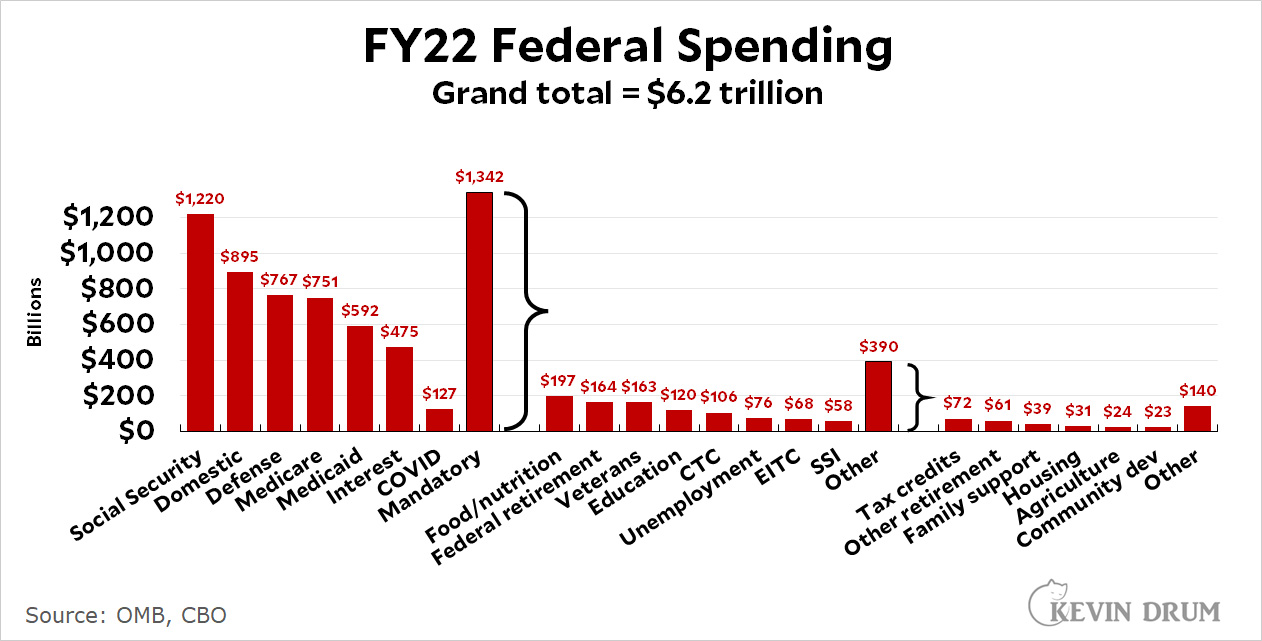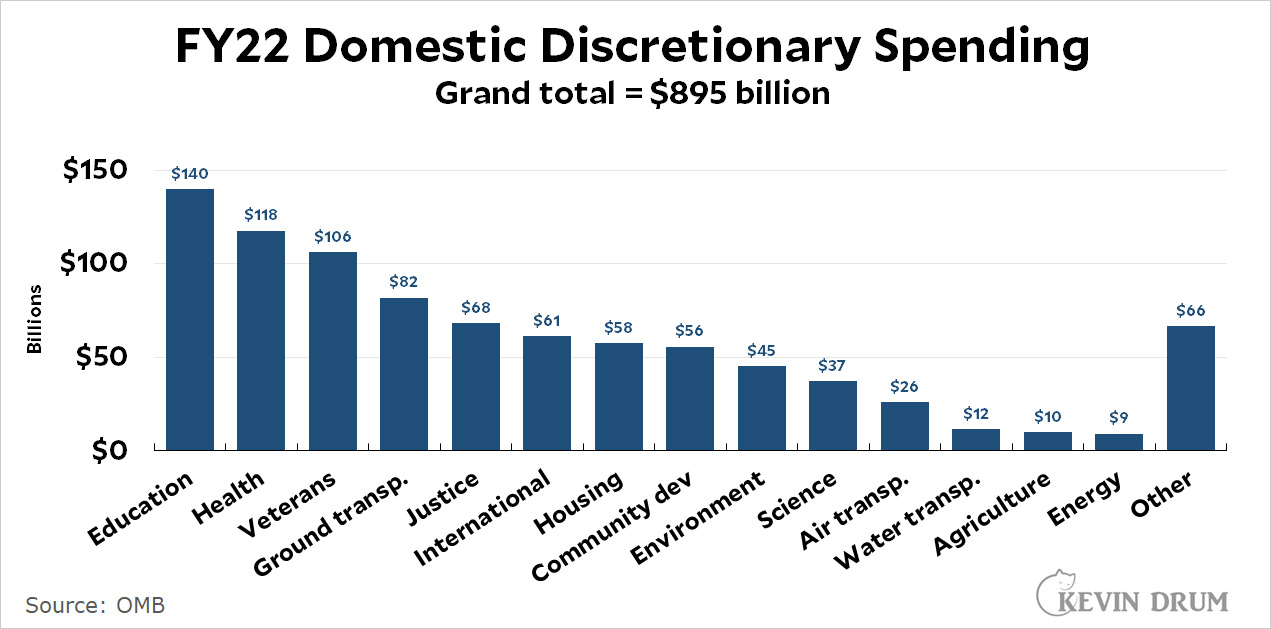A new paper in Nature claims that "disruptive" discoveries in science have been on a downward trend over the past few decades. The authors use a measure of disruptiveness that basically measures whether anyone cares about previous work once the disruptive paper has been published:
The intuition is that if a paper or patent is disruptive, the subsequent work that cites it is less likely to also cite its predecessors; for future researchers, the ideas that went into its production are less relevant. If a paper or patent is consolidating, subsequent work that cites it is also more likely to cite its predecessors; for future researchers, the knowledge upon which the work builds is still (and perhaps more) relevant.
I'm . . . not so sure about this. All the various papers and patents that went into CRISPR, for example, may have been ho-hum, but CRISPR itself is pretty disruptive. You could say the same thing about the internet, cell phones, and GPS. The increasing complexity of the world means that it takes a lot of small pieces to construct a single disruptive discovery.
But there's another thing as well: A very few discoveries in human history might be called super-disruptive: discoveries so big that for many years they enable a follow-on surge of ordinarily disruptive discoveries. Here's a list:
 Don't take the details too seriously here, but this table lists most of the consensus super-technologies and a few of the follow-on technologies they enabled. After the electric grid was invented, for example, households got air conditioning, refrigerators, TVs, microwaves, stereo systems, dishwashers, electric lighting, washers and dryers, and a vast array of other electrical gadgets.
Don't take the details too seriously here, but this table lists most of the consensus super-technologies and a few of the follow-on technologies they enabled. After the electric grid was invented, for example, households got air conditioning, refrigerators, TVs, microwaves, stereo systems, dishwashers, electric lighting, washers and dryers, and a vast array of other electrical gadgets.
The discovery of these super-technologies got closer and closer together all the way through 1950, but now progress seems to have stalled. This is because we're still living in the Computer Age, which our timeline suggests should have lasted about 50 years before giving way to a new super technology. That hasn't happened, which means we're still living on the dregs of an era that's largely played out.
But why hasn't a new super-technology been discovered yet? Because the next super-technology is artificial intelligence, and it turns out that it's really, really hard, even compared to previous gut busters. So we're piddling along with routine improvements and ordinary new inventions while we wait for AI to come along. When that happens, we'll have yet another explosion of innovation.






